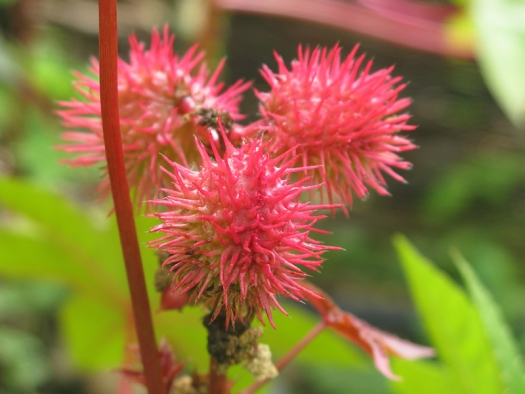We’ve all been raised on the idea of the inevitability of progress in every area of human endeavor. Thanks to our natural ingenuity, things, we believe, are getting better every day in every way.
Except, that is, when it comes to taking care of our health.
With the notable exception of certain surgery and emergency Western medicine (if a building ever falls on me, I want the best of space-age wizardry to put me back together), much of what modern medicine has come up with to treat the great raft of chronic conditions that plague us isn’t working too well.
In many instances, the most sophisticated of drug-based medication cannot compete with one or more older, tried and tested natural remedies, some of them more than 3,000 years old.
That’s definitely the case with castor oil, which is gaining traction all over social media as if it were a brilliant innovative cure-all right out of a high-tech Big Pharma lab.
Castor oil is simply a vegetable seed oil, extracted from the seeds of the castor plant (Ricinus communis), common in such places as India, Mozambique, China, Brazil and elsewhere in Africa and the Far East. Many of its varieties grace homes as house plants.
But there’s nothing new or innovative about it. One of the oldest plants to be cultivated, oil of ricinus was used more than 2000 years ago by the ancient Egyptians and other early civilizations that recognized its extraordinary ability to heal a wide range of ailments. Even Cleopatra is purported to have revered the oil as a means of brightening up the whites of her eyes.
Doctors used to know this. No general practitioner worth his Hippocratic Oath would have left his practice without a bottle of the stuff in his black bag, turning to it for everything from arthritis and constipation to viral and bacterial infections. Indeed, one of its common nicknames is the ‘Palm of Christ’ because of its purported ability to heal wounds plus a long list of bodily complaints.
It’s chiefly known as a powerful laxative, since it stimulates both large and small intestines to shove clogged up fecal matter out the door, and the rich fatty acids contained in the oil also help to maintain moisture in the bowel.
But there are dozens of other uses for this all-purpose elixir.
Besides its uses to ease joint pain, there’s good evidence that helps to heal loads of eye problems, such as dry eye and blepharitis. It has successfully treated a range of skin complaints – from acne and stretchmarks to ringworm and toenail fungus – with many users claiming that as a bonus, the oil plumps up the skin, eliminating fine lines and wrinkles.
Health practitioners have used it to reduce swelling and inflammation, heal wounds and abrasions, and increase flow of both circulation and the lymphatic system. For women, it’s said to relieve menstrual cramps and even induce labor.
Then there are the claims that it helps to grow healthier, more luxuriant hair, including on lashes and eyebrows.
As with any substance, there can be too much of a good thing, though, and castor oil should be considered a medicine, used in limited amounts and only after a patch test.
Even too much topical use can cause a skin reaction, facial swelling or even breathing issues. Too much taken orally can cause such issues as dizziness, abdominal cramps, low blood pressure or electrolyte disturbance.
In fact, too much can be a poison.
The safe level for you has a lot to do with your age, weight and state of health. It’s not a bad idea to consult a healthcare professional who knows something about castor oil before taking it orally or even lathering it all over yourself.
But castor oil isn’t the only substance every doctor should have in his medicine chest.
For instance, organic honey taken from bees local to you has healed hay fever and cleared up acne in the process.
And a range of grow-your own medicinal plants can treat a range of female problem, including infertility, menstrual and menopausal systems and even bugbears like cystitis.
Possibly the most powerful of ancient cure-alls is exhibited by our own bodies, with the extraordinary clean-up process it engages in during a fast. And now we’re recognizing that you don’t have to stop all food - even a limited fast (called a fasting-mimicking diet) will trigger a massive metabolic reset, rid you of toxins and kick off the process of autophagy, a cellular-level spring clean, tossing away or recycling damaged cells.
Most of the time, the simplest solutions are the best. And nowhere is that more evident than with some of the tried and tested health remedies from yesteryear, which are far safer than most of what is sold at a drugstore or chemist.
It doesn’t have to be new or space-age to work. The greatest evidence we have for safety and efficacy with any medical treatment is simply the test of time.
For more information visit Lynne McTaggart's website and the article “Castor Oil Comeback” on the What Doctors Don’t Tell You website.
The All-Purpose Elixir was originally published on Lynn McTaggart's website, April 5, 2024; used with permission.



